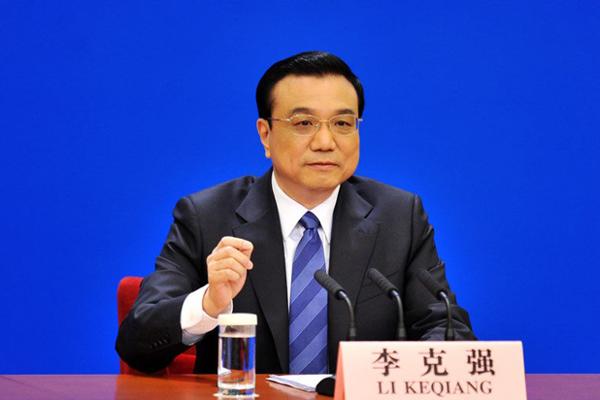
Premier Li Keqiang speaks at a press conference after the closing meeting of the second annual session of China’s 12th National People’s Congress in Beijing, March 13, 2014.[Photo/Xinhua]
Streamlining administrative power and cutting taxes, policies advocated by the government, are new ideas of governing, instead of makeshift measures, said an editorial in ifeng.com.
The government decided to cut over one third of the more than 1,700 administrative approval items conducted by various departments under the State Council, Premier Li Keqiang told his first news conference after taking office in 2013.
The government accomplished the task in about two years, while the original timetable set for the goal was five. In the meantime, the Premier made new requirements, such as to further cut the number of the items, to decrease intermediary agencies subordinate to the government and to streamline the administrative procedures for companies.
This, in turn, injected more vitality into the market. About 12,000 companies registered every day in the past two years.
At the news conference, the Premier also said the government would forbid central or local authorities using government coffers to build new offices, halls or guesthouses for themselves. It would also decrease the number of people on the government payroll and cut spending on official hospitality, overseas trips for official business and the purchase of official vehicles.
In a time of slowing growth in government revenue, while government spending on guaranteeing and improving people’s lives increases, the government needs to cut spending on itself, the Premier said.
The government also cut tax for companies, especially small companies that need preferential tax policies to survive.
In 2015, the government cut more than 300 billion yuan ($45.81 billion) in company tax.
Though the tax cut may reduce government revenue in the short term, it will help many companies to get through the hard times, and will nurture tax resources in the long run.